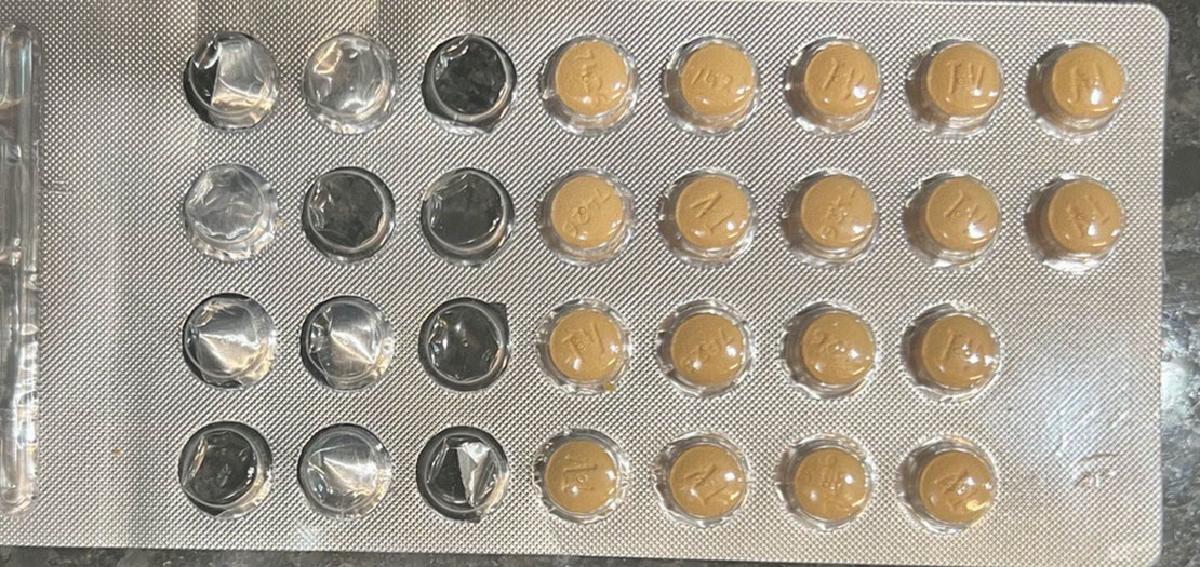How US Courts Protect Big Pharma
Nicholas England, a healthy 22-year-old from Virginia, shot himself in the head in 2017, less than two weeks after he started taking an allergy medicine that had been linked for years to episodes of depression and suicidal thinking.
His parents soon started exploring a lawsuit against Merck, the developer of the blockbuster asthma and allergy drug, Singulair, along with the manufacturer of the generic version their son took. Nicholas had no history of mental health problems, they said.
The Englands were shocked to learn from their legal advisers that they had no case. Like countless other potential plaintiffs, they had run into one of Corporate America’s most effective liability shields: the legal doctrine of preemption, the principle that federal law supersedes state law.

Nicholas England fatally shot himself after taking a generic version of Merck’s Singulair for seasonal allergies. U.S. regulators have received more than 80 reports of suicides linked to the drug. Handout via REUTERS
Armed with U.S. Supreme Court rulings on preemption starting in the 1990s, companies increasingly argue that federally regulated products or services should be immune from lawsuits alleging state-law violations. In a new reading of an old constitutional principle, judges have held that federal law, including the decisions of U.S. regulatory agencies, should preempt, or override, state statutes that seek to hold companies accountable for harming consumers.
State laws historically have provided the legal basis for some of the most common lawsuits against U.S. companies alleging injuries, deaths or illnesses caused by negligence or defective products.
“The emotion of losing your child is so difficult on its own. It is very frustrating to realize that’s a loophole. I’m a small person in southwestern Virginia, and that’s a loophole there to protect companies much bigger than we could fight.”
Jennifer England, whose son died by suicide after taking an allergy medicine tied to psychiatric problems.
These legal dynamics left the England family with no legal remedy at all. A pair of U.S. Supreme Court rulings, in 2011 and 2013, essentially barred lawsuits against generic drugmakers based on state laws that enabled claims over design defects or a failure to warn consumers of potential dangers. The court’s reasoning: Such claims were preempted by federal regulations preventing generic drugmakers, when copying name-brand drugs, from changing the formulation or the warning label.
That meant Merck had written the warning label, with federal approval, on the generic version of Singulair that Nicholas England took. But his parents couldn’t sue Merck, either, because their son had never taken its name-brand version of Singulair.
“The emotion of losing your child is so difficult on its own,” said Jennifer England, Nicholas’s mother. “It is very frustrating to realize that’s a loophole. I’m a small person in southwestern Virginia, and that’s a loophole there to protect companies much bigger than we could fight.”
Merck declined to comment for this report, referring all questions to Organon, a Merck spinoff created in 2021 that now markets Singulair. Organon declined to answer detailed questions from Reuters but said in a statement that it’s confident doctors and patients have gotten “complete and appropriate information” on Singulair’s safety. The generic drug manufacturer that made the pills England took, Teva Pharmaceuticals, did not respond to inquiries.
Corporate preemption defenses have proved broadly effective, according to a Reuters analysis of court cases and dozens of interviews with attorneys, legal scholars and plaintiffs or potential plaintiffs affected by preemption rulings. The analysis of federal appeals and Supreme Court rulings involving preemption found that judges ruled two-thirds of the time to weaken or kill lawsuits alleging deaths or injuries caused by corporate negligence or defective products.
Preemption defenses often deliver companies a swift procedural win, allowing them to avoid addressing the substance of plaintiffs’ allegations. It has been used across a range of federally regulated sectors, from railroads to agricultural chemicals to airlines and automobiles, the Reuters review found.
The preemption defense has had a particularly profound impact in the pharmaceutical industry, the review showed. The high court’s ban on certain lawsuits against generic drug manufacturers has extraordinary reach because generics account for 91% of U.S. prescriptions, according to data from the U.S. Food and Drug Administration (FDA).
Name-brand drugmakers can still be sued, but preemption defenses can make it much harder for plaintiffs to prevail, drug-industry litigation experts said. In many product-liability cases, plaintiffs must prove simply that a company’s product was unsafe. Those facing drugmakers’ preemption defenses must often demonstrate that a company failed to disclose safety information to federal regulators – and that the information could have spurred new government restrictions or warnings before the alleged harm occurred.
Pending lawsuits against Merck allege that the company’s own early research indicated the drug could impact the brain but that Merck downplayed any risks in statements to regulators.
England’s family had hoped to force executives from Merck and the generic manufacturer to reveal what they knew, and when, about the drug’s dangers. In the decade before England’s death, the FDA received more than 4,800 reports of patients, including many children, experiencing depression, suicidal thoughts or other psychiatric problems after taking Singulair or a generic version, according to a Reuters review of FDA data.
But it wasn’t until 2020 that the FDA slapped its most serious warning, called a “black box,” on the drug’s label. By that time, the FDA had received more than 80 reports of suicides in people taking the medicine.
Singulair, one of the best-selling drugs in U.S. history, has provided Merck with about $50 billion in revenue, company disclosures show. Since Merck’s patent on Singulair expired in 2012, major generic drug manufacturers have sold millions of prescriptions under the drug’s scientific name, montelukast.
The FDA said in a statement that it has “diligently monitored reports of side effects possibly associated with montelukast, as well as communicated findings and taken regulatory action, when appropriate.” The agency said it “continues to monitor and investigate this important issue.”
The FDA declined to comment on how modern preemption defenses and court rulings have impacted pharmaceutical regulation and litigation.

These are the allergy pills taken by Nicholas England, a 22-year-old who shot himself in 2017 shortly after starting the prescription. His parents say he took 12 doses, one per day, before he died by suicide. Handout via REUTERS
Big Tobacco precedent
The doctrine of preemption is based on the U.S. Constitution’s supremacy clause. The original intent: to resolve conflicts between federal and state statutes and discourage state legislatures from passing laws that undermine federal policy.
Preemption-based corporate defenses are a modern phenomenon. American courts have historically viewed product-liability lawsuits, largely based on state laws, as vital to holding companies accountable when federal laws and regulations fail to do so. Courts recognized drugmaker liability for harmful medicines as early as the 1850s, according to a Supreme Court filing. FDA regulations once routinely specified that its decisions had no impact on drugmakers’ liability.



Comments are closed.